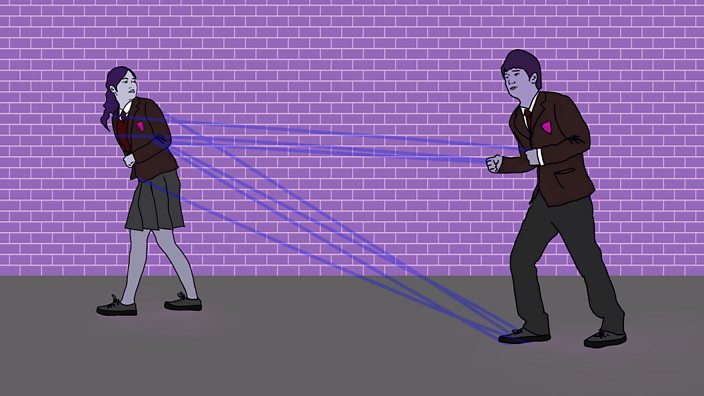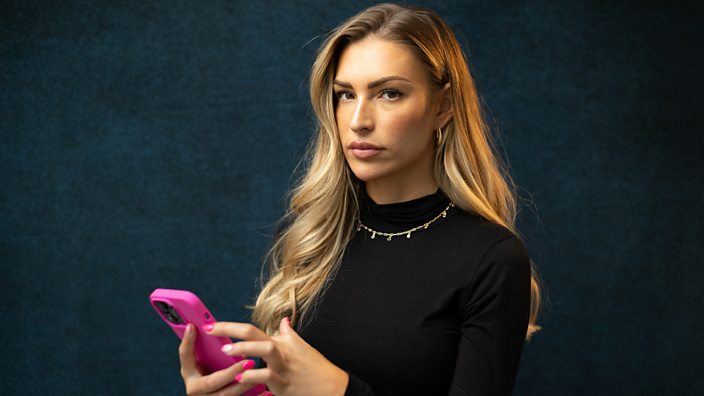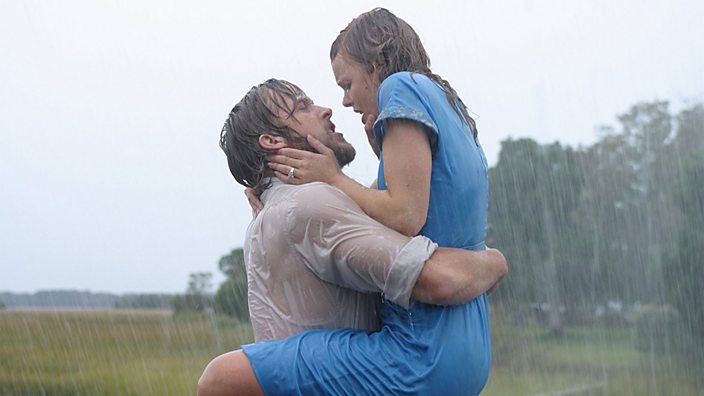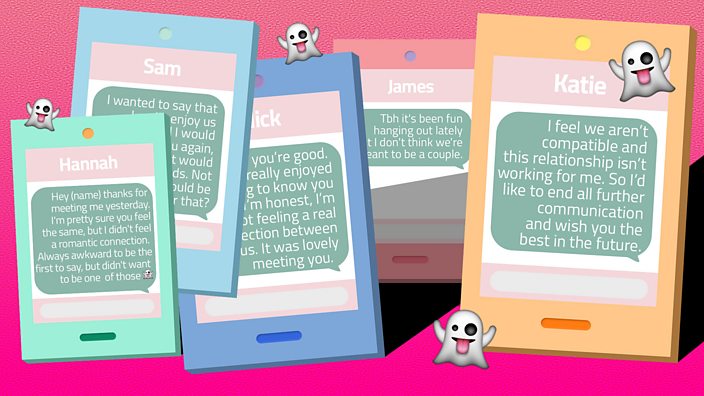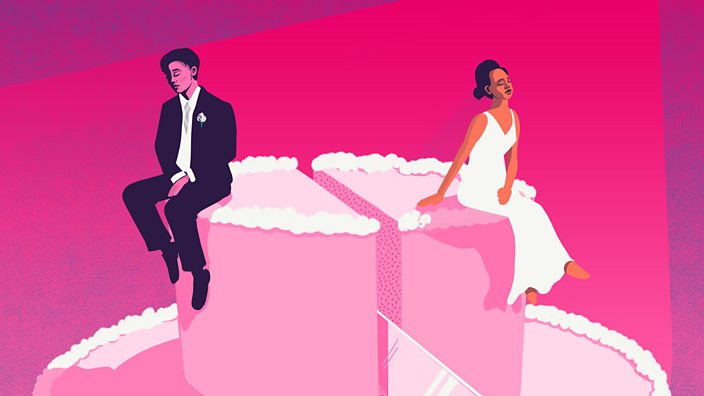 BBC Three
BBC ThreeHow it feels to get divorced in your 20s
...and why it’s not all bad
In the cold, blue glow of her laptop screen, Rachel began to cry. It was early 2018 and the apartment around her was dark and quiet – so different, the then 28-year-old thought to herself, to the cosy home she’d previously shared with her husband. She poured herself another large glass of wine and sat back down at the kitchen table.
“I’d moved into my a friend's place because I didn’t have anywhere else to go,” she tells me. “She wasn’t there that often. I’m sort of glad about that now, about having that space to sort myself out. But I probably shouldn’t have been spending so much time alone… your mind spirals.”
At almost the same moment, 200 miles away, then 26-year-old Rob surfed a government website looking for advice. “My kids were asleep upstairs,” he says now. “I knew I had to keep it together for them.” Rob’s (now ex) wife had left almost a year before. “She’d suffered from a period of bad mental health and decided she wanted time alone. I didn’t, and still don’t, blame her for that. But that doesn’t mean that, when she left us, I wasn’t devastated - as much for our two kids as for myself. By the time I started looking for advice on divorce, I just wanted to move on, for everyone’s sake.”
According to the latest government figures, released last September, there were just over 102,000 divorces in England and Wales in 2017. Though the majority of these were between opposite-sex couples who were in their mid-to-late 40s, almost 12,000 of those divorcing were, like Rachel and Rob, in their 20s. In fact, the age at which you tie the knot is considered to be a risk factor when it comes to divorce, with those marrying in their teens and early twenties thought to be at greater risk. Research concerning women who married for the first time in 1976 found that more than 50% of those who married when they were under 20 had divorced by their 30th anniversary. Arguably, with the advent of dating apps - and the rise of ‘micro cheating’ - there has never been a more difficult time to be young and married.
“It was so painful,” Rachel says. “For two years, it took over my life and I’d get these feelings, like I was being crushed. I know that sounds dramatic, but I’ve never experienced anything like it – the physical ache of sadness at the thought that my relationship, which I thought was forever, was suddenly over.”
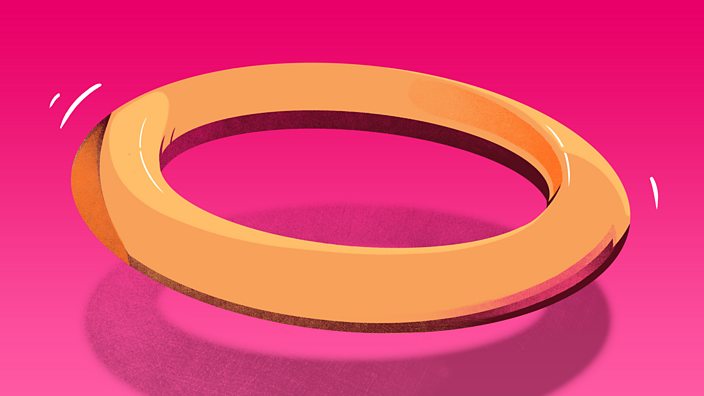 BBC Three
BBC ThreeAs well as the emotional fallout from a marriage ending when it’s barely begun, both she and Rob fell victim to the (at times) complex legal set-up of divorces. “Two years after we got married, I found out that my husband was having an affair. It was awful but I didn’t want to end my marriage,” Rachel says. “So we spent six months hiding it from everyone, pretending everything was fine and trying to work it out.”
Eventually, though, the fallout from the broken trust proved too much and the couple decided to divorce. “That first six months of trying to work it out made it difficult when we finally came to divorcing,” says Rachel. “If you live with someone for six months after finding out about their affair, you can’t legally get a divorce on the grounds of adultery. After so much pain, it felt like I was being punished for trying to save my marriage.”
Despite the fact that Rob’s wife had left him, he realised they would need to stay married for another year before he could apply for divorce on the grounds of desertion. “It felt like I wasn’t able to move on with my life. I was a single parent at this point. It took me more than three months to save what I needed for the fees. I just wanted to get the ball rolling, because the feeling of being in limbo was really messing with my mental health.”
Instead of waiting, both he and his ex petitioned on the grounds of ‘unreasonable behaviour’ - meaning that they had to submit a number of reasons why they could no longer continue being married to their partner. “I don’t think divorce should be as easy as ticking a box,” says Rob. “But as I was filling in these reasons, like [my ex wife] wasn’t helping with bills and she wasn’t playing her part in childcare, all I kept thinking was how bad she would feel when she had to agree to them.”
A number of upcoming law reforms in England and Wales mean that soon partners will no longer have to assign blame when it comes to divorcing. “It would have made it less painful,” says Rob. “But I guess no divorce will ever be easy.” Rachel agrees, adding: “Especially when everyone around you is settling down.”
 BBC Three
BBC ThreeRuby, 31, was married for two years before deciding to split from her husband. “I come from a traditional family, who have always believed that marriage is sacred,” she explains. “My three sisters were married young so, when I met my ex-husband at 26, I threw myself into the relationship because I wanted what they had. We were married within a year.” As soon as the whirlwind of excitement around the wedding passed, though, cracks began to appear. “We were very different people - something I hadn't stopped to find out,” she explains.
“Nothing went wrong. He was great in a lot of ways but there was just something missing between us. We were constantly arguing and misunderstanding each other,” she says. “I found out that he had been messaging other women and that finally opened my eyes to the fact that we should never have gotten married.”
Though the pair were agreed on the split, Ruby’s family weren’t supportive. “I think deep down they wanted me to be happy but everyone my age was newly married and didn’t understand why we couldn’t make it work,” she recalls. “My mum sat me down and said, ‘You’re not trying hard enough. You have to be a better wife.’ That was a real low point for me.”
During the course of her marriage, Ruby says she tried to “change everything” about herself in an attempt to make it work. “I’d cut down my hours at work so that I could be more present as a wife. I’d stopped certain hobbies so that I could spend more time doing things my husband liked,” she says.
“He made sacrifices too but, ultimately, we were both miserable. I tried to explain that to my mum but she thought the shame of the divorce would be worse for me than living in an unhappy marriage.” This sense of shame left Ruby feeling like she wasn’t matching up to her peers, who were settling down. She says she felt like she’d “failed at a basic test of adulthood, like there was something wrong with me”.
For Rachel too, the divorce brought up feelings of shame. “My parents are still together and my siblings are happily married. For my whole life I’d been following this template that went, ‘get a job, get married, have kids,'” she says. “I started to feel like the black sheep of the family. Like I’d messed everything up. I kept thinking about how ashamed my parents would be of me – when in reality they just felt so bad for me, but at the time it felt painfully real.”
 BBC Three
BBC ThreeClinical psychologist Dr Rachel Andrew points out that if a divorce happens “at a point when very few people around you have yet to experience it,” then it’s easy to feel very alone. Relationship therapist and author of The Happy Couple Handbook, Andrew G Marshall, agrees: “Divorcing will always be a hit on your self-esteem. Failure and shame are common emotions but these can be particularly acute if you look around you and everyone else is in the first flush of love.”
For Rachel, seeing friends became more difficult. “I had all these couple friends and they were brilliant, but spending time with them was painful. I guess I’d spent my whole 20s feeling a bit smug that I was settled and happy and kind of waiting for everyone else to catch up. Now my friends were planning weddings and I was dating for the first time since I was 17.”
Being the first person in your peer group to go through a divorce can make a really tough life experience even tougher, explains Dr Andrew. “To be the first in your friendship group to have your marriage break down or to have it break down at a time when everyone around you is getting into something long term can be incredibly overwhelming,” he says. “Your emotions can swing from anger to sadness to fear and, on top of that, you’re likely to still love the other person. The more life experience you have, the more you can put your emotions in context and not allow them to overwhelm you, but younger people can really struggle to understand that everything they feel will one day pass.”
Rob says that having kids made it easier for him to feel hopeful. “They’re suffering but they’re also balls of energy. I could have fallen down a well of grief and self-pity, but they wouldn’t allow me to,” he recalls. “I had to get up and get them ready for play group. I had to go to work so I could keep paying rent for us.”
It was more difficult when it came to seeing friends, though. “We’re just a bunch of lads who’ve been friends for years; we go to the pub every Friday. I tried to keep doing that (my mum would take the kids) but it was hard. Alcohol brought out all the badness I felt inside,” he admits. “I’m not proud of myself but I’d end up drunk and fighting. I smashed a window at my house.”
Eventually, Rob realised he was in crisis and had to take action. “The lads were trying to be there for me by getting me drunk and taking me out but I’d end up crying and I don’t think any of them knew what to say to make it better,” he says. “I realised I’d be fine as long as I stopped drinking, so I’ve been sober for six months.”
Ruby decided to distance herself from her parents and old friends for a period of time. “I moved to a new city and got a new job,” she explains. “I couldn’t get the negative thoughts about myself out of my head. I knew that I needed to make a change.”
After six months, she started dating again. “The first date I went on was a bit of a disaster. I was 29, the guy was 26. When I told him I was in the middle of a divorce, he just acted really weird about it,” she says. “It’s like one minute I was just a girl he was dating and the next he saw me as someone much older, with all this baggage. Since then I’ve been a lot more reserved about telling people.”
Dr Andrew says that it’s normal to carry guilt about the end of a relationship. “You need to understand that what happened is because of the relationship between both of you,” he explains. “It’s not about you as a person or them as a person. Younger people are more prone to dealing in absolutes - to think that ‘this happened because I wasn’t good enough’ - but, if a relationship breaks down, it’s about the relationship, not just one person.”
For Rachel, dating proved to be a more positive experience. “I felt completely clueless, really. There were all these new rules about when you should message people and how often you should see them,” she recalls. “After spending so long worrying about my marriage, though, it proved to be a fun distraction.”
Both Rachel and Ruby are still single and taking their time before rushing into any new relationships. Rob has recently started seeing someone new. “My ex-wife and I are now on good terms. It’s taken a few years but I feel more positive now than I have since way before the end of my marriage.”
Ruby is slowly starting to see her parents again. “Moving away was the best thing I did, though,” she says. “Divorce has taught me that I don’t need to seek their approval all the time, that I’m my own person and responsible for my own happiness. It’s been a difficult journey but this feels like a light at the end of the tunnel.”
Some names have been changed


